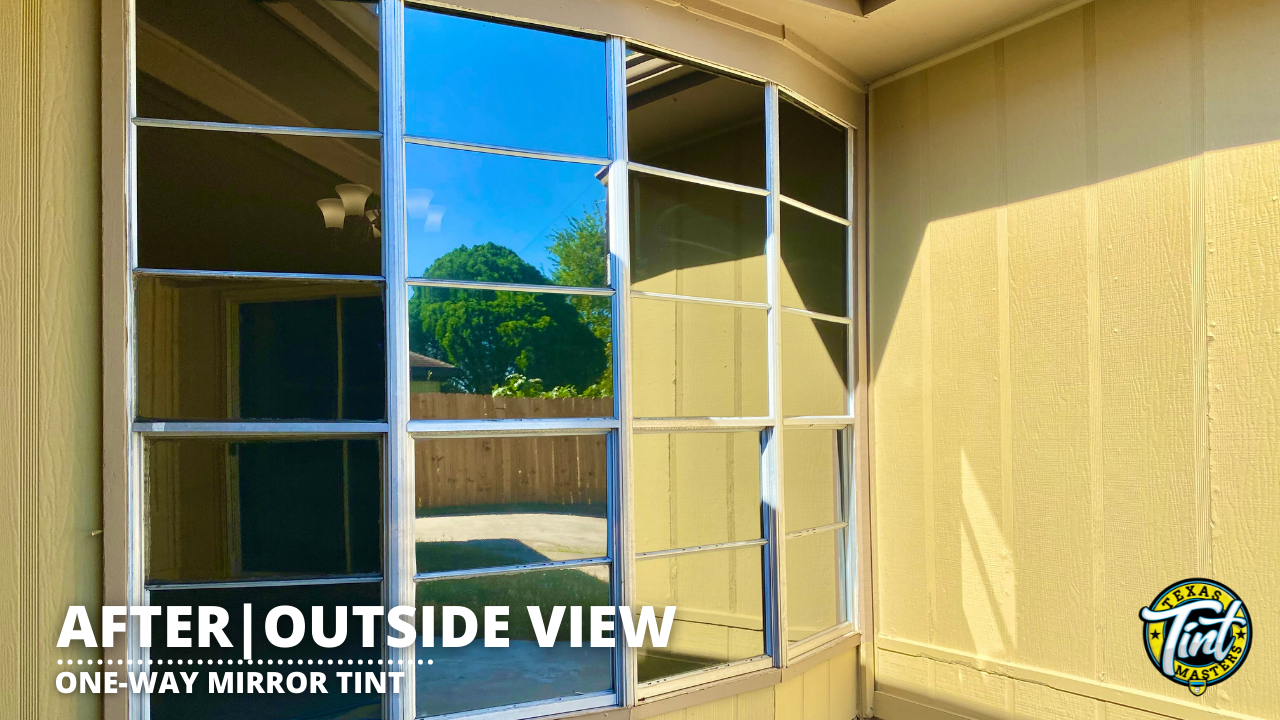Obtain Expert Advice on Picking the Best Residential Window Tint for Your Requirements
Obtain Expert Advice on Picking the Best Residential Window Tint for Your Requirements
Blog Article
How Residential Home Window Tinting Boosts Your Home's Power Performance
Residential window tinting presents a compelling solution for home owners looking for to enhance power efficiency within their living rooms. By using specialized films to home windows, it efficiently decreases warm transfer, thus stabilizing interior temperatures and minimizing the need for too much home heating or cooling.
Comprehending Window Tinting
Recognizing window tinting is important for home owners seeking to improve both comfort and energy efficiency in their space. Residential Window Tint. Window tinting involves the application of a thin film to the interior or exterior surface of glass windows. This film can substantially modulate the quantity of sunlight and heat that enters a home, hence affecting interior climate problems
There are different kinds of window tinting films readily available, each with distinctive properties. The efficiency of window tinting is often gauged by its Visible Light Transmission (VLT) portion, which shows how much light can pass through the movie.
Advantages of Energy Effectiveness
Home window tinting not just enhances aesthetic appeals yet likewise plays a considerable function in enhancing power efficiency within household spaces. By lowering warm transfer through windows, colored movies produce an extra secure indoor environment, which can result in significant reductions in power usage for heating & cooling. This power performance translates right into lower energy bills, offering home owners with significant lasting cost savings.

In addition, home window tinting enhances the comfort of living spaces. By reducing glare and blocking hazardous UV rays, colored home windows create a more pleasant setting, which can bring about enhanced well-being for occupants. The protection against UV rays additionally aids protect furnishings and flooring from fading, contributing to the long life of home items.
How Tinting Functions
Tinting movies operate via a mix of sophisticated materials and technologies designed to control the quantity of solar power going into a home. Primarily made up of polyester, these movies usually integrate metal or ceramic fragments that absorb and show heat. This dual ability enables them to significantly lower the infiltration of ultraviolet (UV) rays and infrared radiation while permitting noticeable light to travel through.
The efficiency of home window tinting is determined by its solar heat gain coefficient (SHGC), which shows just how much solar energy is sent through the home window. Reduced SHGC values are preferable as they signify greater warmth denial. Furthermore, window tints can include a variety of shades, permitting home owners to personalize their aesthetic preferences while enhancing energy performance.
Additionally, these films function as an obstacle, preventing warmth loss during cooler months by reflecting indoor heat back right into the living space. This thermal insulation impact enhances the cooling advantages gotten during warmer months, contributing to a well balanced interior environment year-round. By handling solar power successfully, property home window tinting not only enhances comfort however likewise plays an essential function in reducing power intake and lowering energy expenses.
Picking the Right Color

There are various kinds of home window films readily available, including dyed, metalized, and ceramic. Ceramic movies give superb warmth control without compromising exposure and are extremely sturdy, making them a popular option.
Visible light transmission (VLT) is one more crucial element, as it shows the quantity of natural light that can travel through the colored glass. Property owners ought to choose a color with a VLT that enhances their lighting choices while still providing ample glare reduction.
In addition, analyzing the solar warm gain coefficient (SHGC) can aid identify exactly how well a color can block warm from sunlight. A reduced SHGC shows far better heat control, inevitably enhancing energy performance.
Installment and Maintenance Tips
Correct installation and upkeep are essential parts in making best use of the benefits of household home window tinting. Professionals additionally utilize specialized methods and devices, which can improve the sturdiness and efficiency of the tint.
Following installation, maintenance is vital to lengthen the life of the window film. It is recommended to visit site wait at least 30 days before cleaning up the colored windows to permit the adhesive to treat fully.
Additionally, normal inspections are valuable. Inspect for any peeling or bubbling, which could show inappropriate installment or wear in time - Residential Window Tint. Attending to these problems without delay can stop further damages and keep energy efficiency. By adhering to Continue these installation and maintenance suggestions, property owners can ensure their window tinting proceeds to offer considerable energy savings and comfort for many years to find.
Conclusion
In final thought, domestic home window tinting works as an effective solution for improving energy efficiency within homes. By decreasing warmth transfer and blocking unsafe UV rays, home window films add to decrease power usage and boosted interior comfort. The option of suitable tinting materials, in addition to proper installation and upkeep, better makes best use of these benefits. Inevitably, window tinting represents a lasting investment that not just reduces energy bills but also advertises a comfy living environment throughout the year.
Home window tinting entails the application of a thin film to the inside or outside surface of glass home windows. By reducing warmth transfer via home windows, colored films produce a more secure interior environment, which can lead to substantial reductions in energy usage for home heating and air conditioning.The effectiveness of window tinting is determined by its solar heat gain coefficient (SHGC), which shows just how much solar energy is transmitted with the home window. By handling solar power have a peek here properly, domestic home window tinting not only improves convenience yet additionally plays an important role in lowering energy usage and lowering energy costs.
By decreasing heat transfer and blocking dangerous UV rays, home window movies add to reduce power consumption and improved indoor comfort.
Report this page